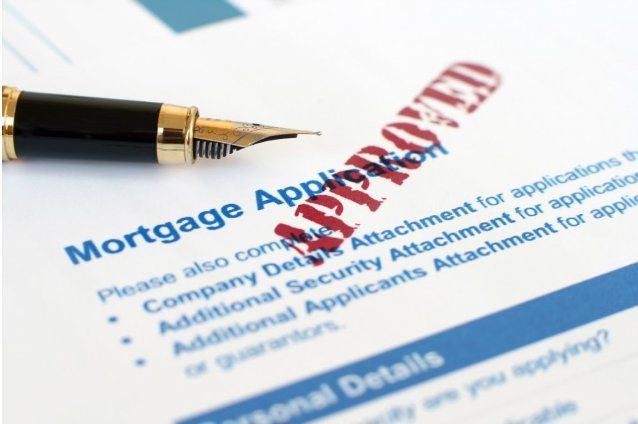3 Factors Banks Consider When Underwriting Mortgages
- By Admin
- •
- 15 Jan, 2020

Mortgages are sizeable loans, and banks conduct a lot of due diligence before underwriting these loans. When you apply for a mortgage, here are three factors that a bank will consider as it decides whether to approve your application.
1. Your Credit Score
You need a decent credit score before you can obtain a mortgage, but your credit doesn't need to be perfect. The Federal Housing Commission even offers a government-backed mortgage program for people with poor credit.
While lenders don't have a universal minimum credit score that mortgage applicants need, most conventional mortgages require a credit score of at least 620. Veterans Affairs loans also usually have a minimum requirement of 620. With an FDA loan from the Federal Housing Authority, you can get a mortgage with a 580 credit score or possibly even a lower number.
Of course, you can qualify for better interest rates if you have a credit score that's above these minimum thresholds. Credit scores of 740 and higher often qualify for the best possible interest rates.
If you need or want to increase your credit score before applying for a mortgage, you can:
2. Your Debt-to-Income Ratio
Your debt-to-income ratio measures how much of your gross pay goes toward debt payments, and it's an easy figure to calculate. To figure out what your current debt-to-income ratio is, do the following:
The maximum debt-to-income ratio you can have and get a qualified mortgage is 43 percent. To be more financially conservative, however, many financial advisors recommend keeping the ratio at 36 percent or less.
If your debt-to-income ratio exceeds what's permissible for a mortgage, there are only two ways to remedy the issue. You'll either need to pay down existing debts or increase your income before you can get a mortgage. Sometimes, people can easily reduce debt if they have a financed car to sell. Raises, bonuses, and part-time jobs can help increase income.
3. Your Work History
Banks commonly ask for your employment history when you apply for a mortgage, and they want to make sure you have a solid history. The logic is that someone who has held the same job for a good length of time will likely continue to work in that place — and bring in an income to pay the mortgage with.
Lenders normally want to see two years at the same job. If you've changed jobs for a promotion or to move up in your career, that's also fine.
If you need a home mortgage, contact Cornerstone Residential Mortgage. We’ll help you find the right loan for your home.
1. Your Credit Score
You need a decent credit score before you can obtain a mortgage, but your credit doesn't need to be perfect. The Federal Housing Commission even offers a government-backed mortgage program for people with poor credit.
While lenders don't have a universal minimum credit score that mortgage applicants need, most conventional mortgages require a credit score of at least 620. Veterans Affairs loans also usually have a minimum requirement of 620. With an FDA loan from the Federal Housing Authority, you can get a mortgage with a 580 credit score or possibly even a lower number.
Of course, you can qualify for better interest rates if you have a credit score that's above these minimum thresholds. Credit scores of 740 and higher often qualify for the best possible interest rates.
If you need or want to increase your credit score before applying for a mortgage, you can:
- Avoid sources of new debt.
- Pay off outstanding debts.
- Make debt payments on time.
2. Your Debt-to-Income Ratio
Your debt-to-income ratio measures how much of your gross pay goes toward debt payments, and it's an easy figure to calculate. To figure out what your current debt-to-income ratio is, do the following:
- Add up your monthly income from all sources.
- Add up your minimum monthly debt payments for all loans.
- Divide amount of debt by the amount of income.
- Multiply the figure by 100 to get a percentage.
The maximum debt-to-income ratio you can have and get a qualified mortgage is 43 percent. To be more financially conservative, however, many financial advisors recommend keeping the ratio at 36 percent or less.
If your debt-to-income ratio exceeds what's permissible for a mortgage, there are only two ways to remedy the issue. You'll either need to pay down existing debts or increase your income before you can get a mortgage. Sometimes, people can easily reduce debt if they have a financed car to sell. Raises, bonuses, and part-time jobs can help increase income.
3. Your Work History
Banks commonly ask for your employment history when you apply for a mortgage, and they want to make sure you have a solid history. The logic is that someone who has held the same job for a good length of time will likely continue to work in that place — and bring in an income to pay the mortgage with.
Lenders normally want to see two years at the same job. If you've changed jobs for a promotion or to move up in your career, that's also fine.
If you need a home mortgage, contact Cornerstone Residential Mortgage. We’ll help you find the right loan for your home.



